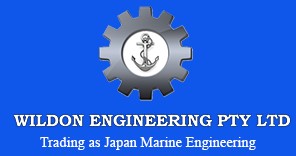How to Assess the Condition and Performance of Your Ship’s Turbocharger?
Blog | October 25th, 2022Your ship maximises a wide array of components for it to work. One of these components is the engine. An engine provides the needed propulsion power for your ship, making sure that it can traverse the waters without any issues.
But to enhance the performance of your engine, you must invest in a quality turbocharger. A turbocharger, which is comprised of blower and turbine sides, helps increase the density of air entering the engine, allowing the latter to operate more effectively. It compresses the air and presses it into the cylinder of the engine, ensuring that the ship can gain more power. You can also gain some improvements over your engine’s power-to-weight ratio.
Do take note that the capabilities of your ship’s turbocharger can only be maximised if it will be checked regularly. Here are some things you can do to assess its condition and performance.
Check the Basic Parameters
Most turbochargers can already work well on their default configuration. And so, if your turbocharger also works on its default settings, you must regularly check its crucial parameters. These parameters include the speed of the turbocharger, differential air pressure in the manometer, lube oil pressure and temperature, cooling water inlet and outlet temperatures, and exhaust gas inlet and outlet temperatures. Once you have spotted some inconsistencies in their values, you may have to configure the turbocharger again.
Track Any Sound Presence
Different devices produce weird and strange sounds whenever they have some problems internally. Hence, once you hear some scratching noise out of your turbocharger, it means that its rotating parts have obtained serious issues. Alternatively, a howling sound from your turbocharger means that it currently maximises a choked inlet or air passage. You must have the turbocharger serviced or replaced if you cannot resolve them on your own.
Gauge the Vibration Levels
Vibration is expected with turbochargers since some of their components rotate at high speeds. However, if they suddenly vibrate beyond their normal vibration frequency, you must stop them immediately from working. This intense vibration may be caused by worn-out bearing or loose foundation bolts, which must be resolved right away.
Look for Sump Oil Leakage
Turbochargers with separate oil sumps require frequent checks and inspections, especially on their oil level and temperature. Without checking them regularly, leakage in the turbine side casing may occur, which leads to oil getting into the hot areas of the engine. As the leakage continues, it may eventually lead to a fire, which can be catastrophic for marine vessels. Once leaks have been found, you must have your turbocharger serviced by professionals right away.
Check the Exhaust Joints
The inlet of your turbocharger is situated from the engine, while the outlet attaches exhaust pipes to the funnel. This formation allows the turbocharger to handle extremely high-temperature gases, which must not leak throughout your ship operations. Leakage is prevented by connecting these points by flange with a distance piece next to one another. When ensuring the performance of your turbocharger, you should make sure that it does not have any exhaust leakage from the joints to prevent smoke or fire.
Now, if your turbocharger needs to be replaced, you can contact us at Wildon Engineering so we can provide you with the best one for your ship.
Optimized by NetwizardSEO.com.au
Recent Posts
- Yanmar Marine Compressors: Applications in Engine Starts, Valves, and Safety Systems
- Water vs Oil in Stern Tube Bearings: The Cost & ESG Truth Shipowners Can’t Ignore
- Yanmar Turbochargers: How Correct Spec-Matching Supports Lower SFOC and Prevents Surge
- Yanmar Diesel Generators: Planned vs Predictive Maintenance Strategies for Remote Operations
- Mareflex SOLAS Marine Tapes: Safety Applications on Marine Vessels
- Yanmar Propulsion Systems: FPP vs CPP Propellers for 6EY and 6N Series Fuel Efficiency
- Mitsubishi K.K. Purifier Separator: The Key to Cleaner Fuel and Smoother Operations
- Kemel Air Seal Retrofits: Leak-Free Stern Tube Seals and Reduced Lube-Oil Risk
- Yanmar Auxiliary Generators: Sizing for Reefers, Hotel Loads, and Dynamic Positioning Systems
- Water Lubricated Stern Tube Bearing (EVR): Proven Technology for Smooth and Quiet Operations
